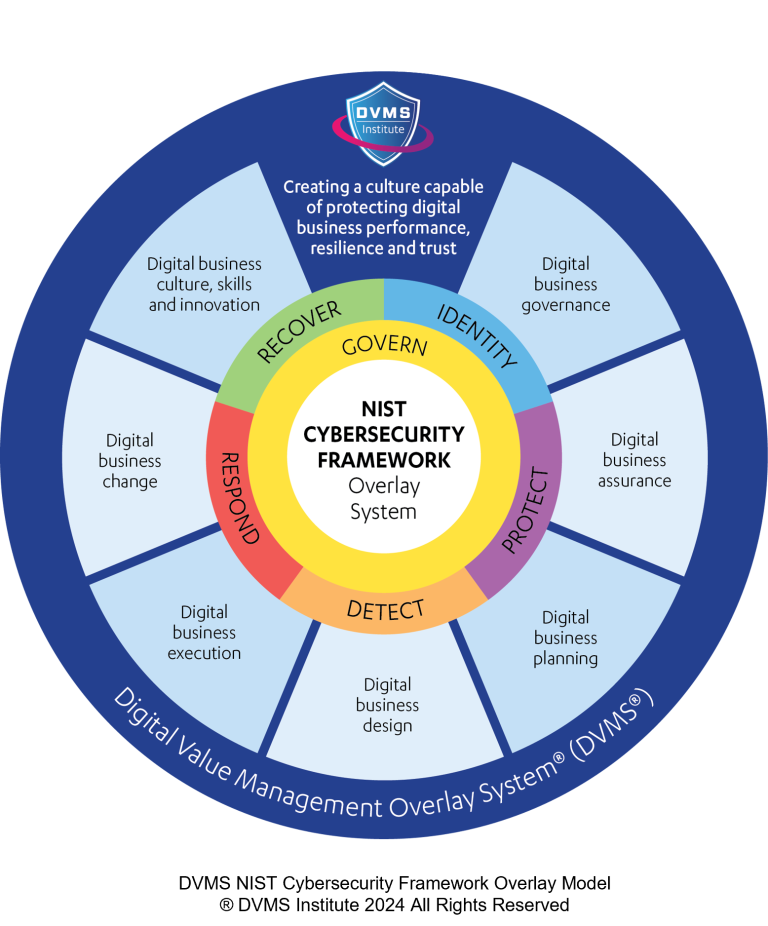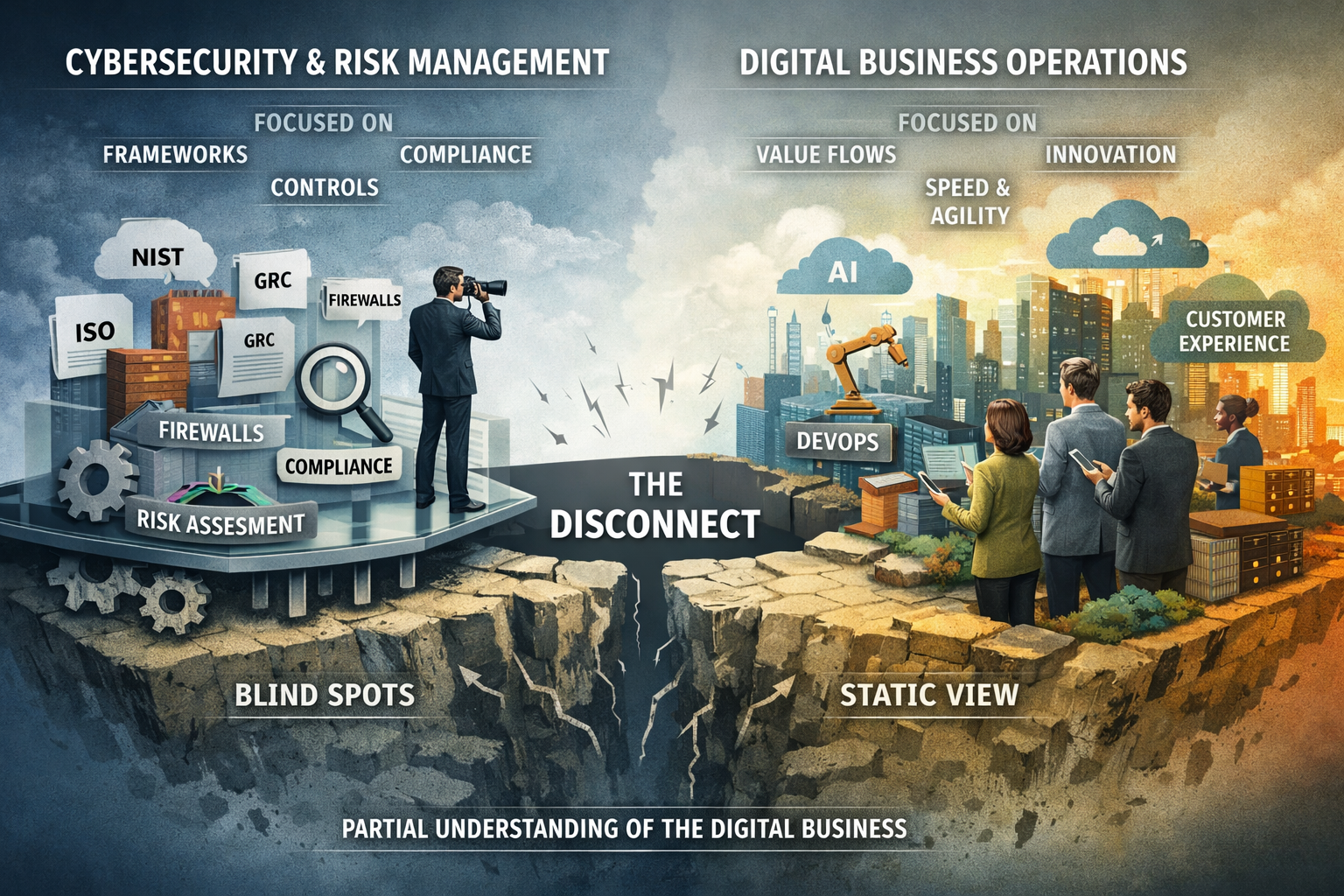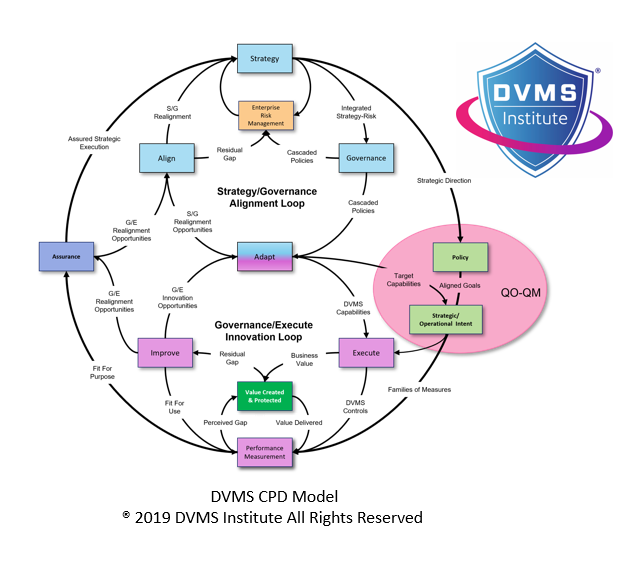IT Service Management Professionals: The Backbone of Cyber Risk Management
Rick Lemieux – Co-Founder and Chief Product Officer of the DVMS Institute
IT Service Management (ITSM) is often viewed through the lens of service delivery and support. However, its impact on cybersecurity risk management is profound and far-reaching. ITSM professionals, with their deep understanding of IT infrastructure, processes, and service delivery, are instrumental in building a resilient and secure organizational ecosystem.
At the core of ITSM lies a structured approach to service delivery, and this discipline is directly applicable to cybersecurity. By treating security as a service, ITSM frameworks provide a systematic method for managing and improving security processes. This includes identifying security requirements, designing and implementing security controls, and continuously monitoring and improving security measures.
One critical role of ITSM in cybersecurity risk management is incident management. ITSM frameworks offer a structured approach to responding to security incidents, ensuring timely detection, containment, eradication, and recovery. By following established procedures, ITSM professionals can minimize the impact of incidents, protect critical assets, and restore normal operations.
Change management is another ITSM process with significant implications for cybersecurity. ITSM professionals ensure that IT system and service changes are assessed for potential security risks before implementation. This proactive approach helps prevent unintended consequences and vulnerabilities. Furthermore, by managing changes effectively, ITSM professionals contribute to the overall stability and security of the IT environment.
ITSM’s focus on service continuity aligns seamlessly with cybersecurity objectives. Business continuity planning (BCP) and disaster recovery planning (DRP) are integral components of ITSM, and these plans are essential for mitigating the impact of cyberattacks. By developing and maintaining robust BCP and DRP plans, ITSM professionals help ensure the organization can recover from security incidents with minimal disruption.
Risk assessment and management are fundamental to both ITSM and cybersecurity. ITSM professionals can contribute to risk assessments by identifying threats and vulnerabilities within IT services. By understanding the impact of potential incidents on service delivery, ITSM teams can prioritize risk mitigation efforts.
Moreover, ITSM fosters a culture of continual improvement, which is essential for maintaining a solid security posture. By regularly reviewing and refining IT services, ITSM professionals can identify opportunities to enhance security controls and reduce risks. This iterative approach helps organizations stay ahead of evolving threats.
ITSM professionals are also crucial in-service level management (SLM) and capacity management. By defining and monitoring service levels, ITSM ensures that security controls are in place to meet agreed-upon performance targets. Capacity management helps prevent system overloads, which can increase vulnerability to attacks.
Collaboration between ITSM and cybersecurity teams is essential for success. These teams can create a unified approach to risk management, incident response, and service improvement by working together. ITSM professionals bring a deep understanding of IT processes and infrastructure, while cybersecurity experts provide specialized knowledge of threats and vulnerabilities.
IT Service Management is a cornerstone of effective cybersecurity risk management. By leveraging ITSM frameworks and processes, organizations can strengthen their security posture, improve incident response capabilities, and build a more resilient IT environment. The collaboration between ITSM and cybersecurity teams is essential for achieving optimal results and protecting critical assets.
About the Author

Rick Lemieux
Co-Founder and Chief Product Officer of the DVMS Institute
The DVMS Institute teaches organizations of any size, scale, or complexity an affordable approach to mitigating cyber risk to protect digital business performance, resilience, and trust.
Rick has 40+ years of passion and experience creating solutions to give organizations a competitive edge in their service markets. In 2015, Rick was identified as one of the top five IT Entrepreneurs in the State of Rhode Island by the TECH 10 awards for developing innovative training and mentoring solutions for boards, senior executives, and operational stakeholders.
® DVMS Institute 2024 All Rights Reserved




